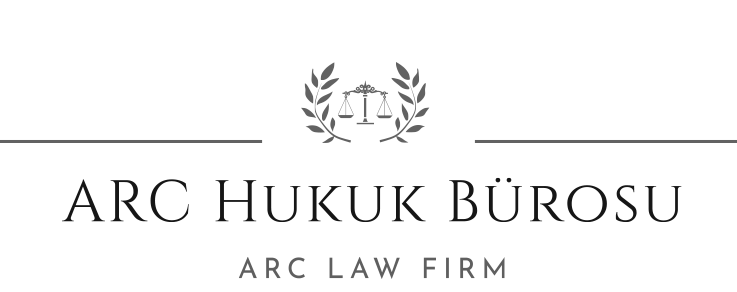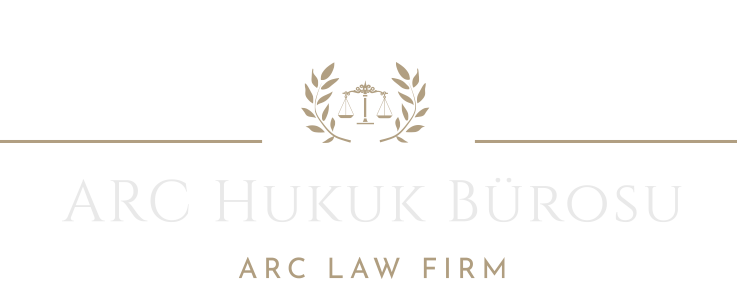A trademark is a sign that distinguishes the goods or services of an undertaking from the goods or services of other undertakings. Book 1 of the Industrial Property Law No. 6769 clearly regulates what can be a trademark, how applications should be filed and oppositions. Pursuant to Article 4 of Law No. 6769, a trademark may consist of any sign, including personal names, words, figures, colors, letters, letters, numbers, sounds and the form of the goods or their packaging, provided that it can be shown in the registry in such a way that the protection provided to the trademark owner can be clearly and precisely understood. Refusals of trademark applications are divided into two categories: Absolute refusals and relative refusals.
1. Reasons for Absolute Refusal
– Signs that cannot be trademarks by not complying with the criteria mentioned above and listed in Article 4 of Law No. 6769
– Signs without any distinctive characteristic
– In the field of commerce, signs that exclusively or as an essential element include signs or designations indicating the genus, variety, quality, quality, quantity, purpose, value, geographical origin or indicating the time when the goods are produced, the services are provided or other characteristics of the goods or services
– Marks identical or indistinguishably similar to a trademark registered or applied for registration at an earlier date in relation to the same or similar goods or services
– Signs which exclusively contain the inherent shape or other characteristic of the goods or the shape or other characteristic which is necessary to obtain a technical result or which gives the goods their intrinsic value
– Signs that mislead the public about the nature, quality or geographical origin of the goods or services
– Signs to be rejected according to Article 6 bis of the Paris Convention (such as state emblems, official logos and emblems of interstate organizations)
– Signs which are not covered by Article 6 of the 2nd Repertoire of the Paris Convention, but which are of public interest, historical and cultural values, and other signs of public interest, and signs containing coats of arms, insignia or designations for which registration permission has not been granted by the competent authorities.
– Signs containing religious values or symbols
– Signs contrary to public order or public morality
– Signs consisting of a registered geographical indication or containing a registered geographical indication
If a trademark has been used before the application date and has gained distinctive character as a result of this use in terms of goods or services subject to the application, the registration of this trademark cannot be refused according to subparagraphs (b), (c) and (d) of paragraph 1 of Article 5 of Law No. 6769.
On the other hand, a trademark application for which a notarized document showing that the previous trademark owner expressly consents to the registration of the application has been submitted to the Office cannot be refused pursuant to subparagraph (ç) of paragraph 1 of Article 5 of Law No. 6769. The procedures and principles of the said consent are set out in the regulation.
2. Grounds for Relative Refusal
– If there is a likelihood of confusion, including the likelihood of association by the public with the registered trademark or the trademark applied for earlier, due to the sameness or similarity of the trademark and the sameness or similarity of the goods or services covered by it, the application shall be refused upon objection.
– An application filed by a commercial agent or representative for the registration of an identical or indistinguishably similar trademark in his own name without the authorization of the trademark owner and without a justifiable reason shall be rejected upon objection of the trademark owner.
– An application filed by a commercial agent or representative for the registration of an identical or indistinguishably similar trademark in his own name, without the permission of the trademark owner and without just cause, shall be refused upon objection of the trademark owner.
– If a right has been obtained for an unregistered trademark or another sign used in the course of trade before the application date or the priority date, if any, the trademark application shall be refused upon the objection of the owner of such sign.
– Applications for trademarks which are identical or similar to well-known trademarks within the meaning of Article 6 of the 1st repeated Article 1 of the Paris Convention shall be refused upon opposition in respect of identical or similar goods or services.
– In cases where an unfair advantage may be obtained, the reputation of the trademark may be damaged or its distinctive character may be harmed due to the level of recognition that a registered trademark or a trademark for which the application for registration has been filed at an earlier date has reached in Turkey, the application for registration of the same or similar trademark shall be rejected upon the objection of the owner of the earlier trademark, regardless of whether the application is filed for the same, similar or different goods or services, without prejudice to the justifiable reason.
– If the trademark for which the application for registration is filed contains the name, trade name, photograph, copyright or any intellectual property right of another person, the application shall be refused upon the objection of the right holder.
– A trademark application filed within three years after the expiry of the term of protection of a collective mark or a guarantee mark for non-renewal, which is identical or similar to the collective mark or guarantee mark and which includes the same or similar goods or services, shall be refused upon the objection of the previous right holder.
– A trademark application filed within two years from the expiry of the term of protection of a registered trademark due to non-renewal, which is identical or similar to such trademark and covers the same or similar goods or services, shall be refused upon the objection of the prior right holder, provided that the trademark has been used within this two-year period.
– Trademark applications filed in bad faith shall be rejected upon opposition.
APPLICATION
– Trademark applications can be filed with physical documents or online. In order to apply, the applicant does not have to be a merchant or have a commercial enterprise. In other words, it is also possible for real persons to apply for trademark registration.
– A separate registration application must be filed for each trademark. It is not possible to file a single application for multiple trademarks.
Trademark application,
i. Application form containing information on the identity of the applicant,
ii. Brand example,
iii. List of goods or services subject to the application,
iv. Proof of payment of the application fee,
v. If the application is made for a collective mark or a guarantee mark, the technical specification issued under Article 32,
vi. If there is a priority right request, a document showing that the priority right request fee has been paid,
vii. If letters or letters other than the Latin alphabet are used in the trademark sample, their equivalent in the Latin alphabet should be included. If the trademark is found appropriate as a result of the administrative process and examinations carried out by the TPI, the trademark registration is realized.
Trademark registration is realized at the end of the administrative process carried out by the TPI upon application.
This process
registration application,
classification and examination of the application by the TPI,
publication of the application,
filing of objections to the application, examination of objections,
issuance of registration documents / rejection of the registration application,
stages. An application whose application is complete or whose deficiencies have been eliminated and whose right has not been objected to within the time limit or whose objection has been rejected definitively is registered and recorded in the registry. The applicant is also issued a “Trademark Registration Certificate”.
The duration of the protection provided by trademark registration is 10 years from the date of application for registration. This period can be renewed in 10-year periods and unlimitedly, effective from the end of each 10 years.
Trademarks whose registration is not renewed within a period of six months following the expiration of the term of protection are deemed invalid. The request for renewal and the payment of the renewal fee must be made within six months prior to the expiration of the term of protection. If the request is not made within this period, the renewal can also be renewed within six months from the expiration date of the protection period, provided that the additional fee is paid.
In order to apply for trademark registration, it is not necessary for the trademark to be in use. However, if the trademark is not used in any 5-year period after registration, the trademark will be canceled.


